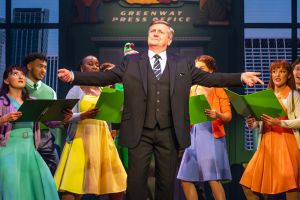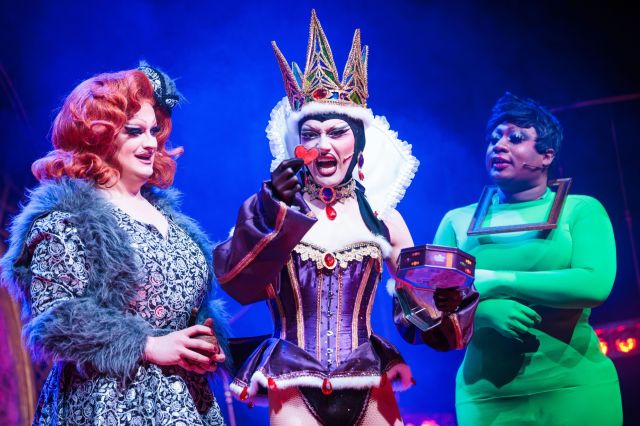Nowhere at Traverse Theatre – Edinburgh Fringe Review
Fuel’s solo show production, performed by Khalid Abdalla and directed by Omar Elerian, runs until 24 August

“When the unfathomable becomes persistent, where do you go?” That question haunts Nowhere, an allusive, probing meditation on identity and belonging, on the forces that shape us and how we can become a power that alters our own future.
First seen at the Battersea Arts Centre last year, it’s written by Khalid Abdalla, born in Glasgow, whose grandfather was Egyptian, and whose father was born in America; a man from a long line of political prisoners, who himself took part in the protests in Tahrir Square in the Arab Spring, and who is now best known for playing Dodi Fayed in The Crown and the lead hijacker in United 93.
All these tangled threads and the thoughts they provoke are part of this story, which also encompasses his friend Aalam, an artist and activist who is dying of cancer, the colonial history of Egypt and the actions of Lord Cromer, the violence in Gaza, and the ability to draw a self-portrait without looking.
This mingling of the personal and the external, of autobiography and history, of the sweep of events and one person’s ability to resist and interpret them, is part of the great strength of the play. By its refusal to be prescriptive and its willingness to raise endless questions, it leans into the value of art, of theatre as a forum for debate and thought. It creates a shared space, a nowhere where the impossible can be raised. “This nowhere is safe…but there exists a place in the world, now, in which nowhere is safe.”
That tension is reflected in the fabric of the piece, produced by Fuel, and directed with considerable sensitivity and control by Omar Elerian. It uses photographs, sounds and documentary footage alongside the words to make its points. Abdalla drops images of his family, of political figures on an old-style projector; he draws the curtains of Ti Green’s set and images of Aalam are projected onto them. He dances, in choreography by Omar Rajeh, in crunched movements of pain, his shoulders hunched, his arms twitching.
Throughout it all, he is a charismatic and involving narrator. There are moments when his storytelling perhaps becomes too syrupy, but on the whole he walks a fine tightrope between chummy audience interaction – his adoption of his strong, native Scottish accent as opposed to the RP of his education went down well in Edinburgh – and righteous fury at what is happening in the world, and the characterisation of Arab peoples within it.
Towards the close, he shows Led By Donkeys’ film of children’s clothes laid on Bournemouth beach, each tiny outfit representing a Palestinian child who died in Gaza between October 2023 and February 2024 when it was made. The camera lingers on each to begin, concentrating on building that tangible sense of a life lost. By the close, it floats in the sky, the garments seeming to go on forever. It’s devastating. As an audience, we are left to dwell with it. “Never again has to be for everyone,” Abdalla says quietly. “…Genocides do not happen without the poison of seeing others as less than human being endemic in the dominant culture.”
This play is part of the challenge to that world view, an intricately worked tapestry of stories that counters flattened, demeaning stereotypes and asks us to start asking new questions and coming up with new answers. It’s a very fine piece of work.
















